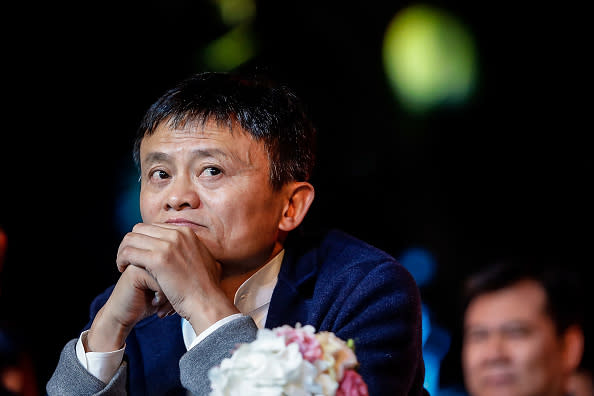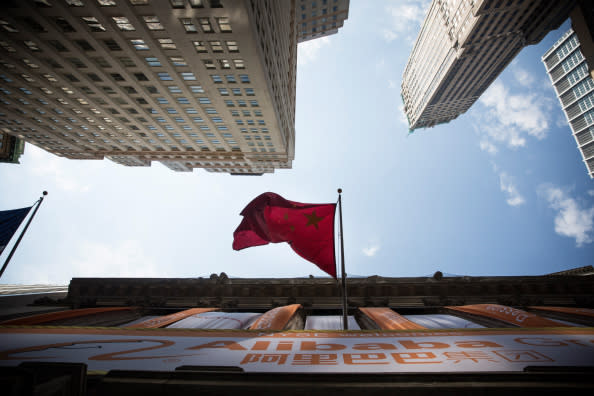The real reason why traders are shorting Alibaba

Short sellers are betting big on Alibaba (BABA), and it’s not just because they don’t like the Chinese e-commerce giant.
Alibaba is currently the largest equity short worldwide with a short interest of $25.9 billion, according to New York-based financial data firm S3 Partners. As the stock price tripled since 2016, short sellers haven’t been scared by the $15.7 billion mark-to-market loss. One month into 2018, Alibaba’s short interest has already gone up by 19%, or $3.99 billion.
Of course Alibaba has its own challenges. It just reported a rare miss on earnings this quarter and invested more in businesses with narrow margins. It also faces fierce competition from domestic rival Tencent and international contender Amazon.
But the real reason behind the big short may not be Alibaba itself. “Alibaba is a major short for being a hedge for the Chinese economy, as opposed to purely negative stock play.” Ihor Dusaniwsky, managing director at S3 told Yahoo Finance. “The majority of the short is more a Beta bet than an Alpha bet.”
Alibaba is the best proxy to short China

For hedge fund managers, there aren’t many choices when they want to short China’s economy. China equity markets are not totally accessible to international investors due to government regulations, though Beijing has been trying to open it up in recent years. So, investors’ best bets are from Chinese companies listed in Hong Kong and the U.S. For example, big-name short-seller and China bear James Chanos has been shorting Alibaba for years until the beginning of 2017.
Also, traders eye large-cap stocks with enough liquidity, robust trading activities that can move the market in order to bet on the economy. To take a short position, they need to borrow stocks in a company and then sell it. Alibaba has been a red-hot short target also due to its relatively low borrowing cost — many of its shares are held by institutional investors rather than retail investors, providing a large amount of borrow availability.
Doubts about China, the rapidly growing but also heavily indebted economy have never ceased. The pace of its growth has been slowing down. Last year, its GDP grew 6.9%. Alibaba’s success is closely tied to the country’s economic boom and increased consumption. “In the next 10 to 15 years, China is going to have 500 million to 600 million middle class. The demand for high-quality and high-service products is huge,” Alibaba’s chairman Jack Ma said last June.
Dusaniwsky of S3 Partners expects more short interest on Alibaba, which is the top China stock for international investors. “On the long side, it’s gonna be the preferred bet; On the short side, it’s also gonna be the preferred bet,” Dusaniwsky said. “If you’re not totally into the Chinese market, this is the name you know and you invest.”
Krystal Hu covers e-commerce for Yahoo Finance. Follow her on Twitter.
Read more:
How young consumers fueled Alibaba’s 90% in mobile Singles Day sales
